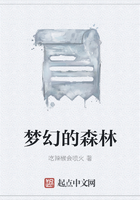It was a bill for seven hundred francs, signed by her, and which Lheureux, in spite of all his professions, had paid away to Vincart. She sent her servant for him. He could not come. Then the stranger, who had remained standing, casting right and left curious glances, that his thick, fair eyebrows hid, asked with a ***** air--
"What answer am I to take Monsieur Vincart?"
"Oh," said Emma, "tell him that I haven't it. I will send next week; he must wait; yes, till next week."
And the fellow went without another word.
But the next day at twelve o'clock she received a summons, and the sight of the stamped paper, on which appeared several times in large letters, "Maitre Hareng, bailiff at Buchy," so frightened her that she rushed in hot haste to the linendraper's.
She found him in his shop, doing up a parcel.
"Your obedient!" he said; "I am at your service."
But Lheureux, all the same, went on with his work, helped by a young girl of about thirteen, somewhat hunch-backed, who was at once his clerk and his servant.
Then, his clogs clattering on the shop-boards, he went up in front of Madame Bovary to the first door, and introduced her into a narrow closet, where, in a large bureau in sapon-wood, lay some ledgers, protected by a horizontal padlocked iron bar. Against the wall, under some remnants of calico, one glimpsed a safe, but of such dimensions that it must contain something besides bills and money. Monsieur Lheureux, in fact, went in for pawnbroking, and it was there that he had put Madame Bovary's gold chain, together with the earrings of poor old Tellier, who, at last forced to sell out, had bought a meagre store of grocery at Quincampoix, where he was dying of catarrh amongst his candles, that were less yellow than his face.
Lheureux sat down in a large cane arm-chair, saying: "What news?"
"See!"
And she showed him the paper.
"Well how can I help it?"
Then she grew angry, reminding him of the promise he had given not to pay away her bills. He acknowledged it.
"But I was pressed myself; the knife was at my own throat."
"And what will happen now?" she went on.
"Oh, it's very ******; a judgment and then a distraint--that's about it!"
Emma kept down a desire to strike him, and asked gently if there was no way of quieting Monsieur Vincart.
"I dare say! Quiet Vincart! You don't know him; he's more ferocious than an Arab!"
Still Monsieur Lheureux must interfere.
"Well, listen. It seems to me so far I've been very good to you."
And opening one of his ledgers, "See," he said. Then running up the page with his finger, "Let's see! let's see! August 3d, two hundred francs; June 17th, a hundred and fifty; March 23d, forty-six. In April--"
He stopped, as if afraid of ****** some mistake.
"Not to speak of the bills signed by Monsieur Bovary, one for seven hundred francs, and another for three hundred. As to your little installments, with the interest, why, there's no end to 'em; one gets quite muddled over 'em. I'll have nothing more to do with it."
She wept; she even called him "her good Monsieur Lheureux." But he always fell back upon "that rascal Vincart." Besides, he hadn't a brass farthing; no one was paying him now-a-days; they were eating his coat off his back; a poor shopkeeper like him couldn't advance money.
Emma was silent, and Monsieur Lheureux, who was biting the feathers of a quill, no doubt became uneasy at her silence, for he went on--
"Unless one of these days I have something coming in, I might--"
"Besides," said she, "as soon as the balance of Barneville--"
"What!"
And on hearing that Langlois had not yet paid he seemed much surprised. Then in a honied voice--
"And we agree, you say?"
"Oh! to anything you like."
On this he closed his eyes to reflect, wrote down a few figures, and declaring it would be very difficult for him, that the affair was shady, and that he was being bled, he wrote out four bills for two hundred and fifty francs each, to fall due month by month.
"Provided that Vincart will listen to me! However, it's settled.
I don't play the fool; I'm straight enough."
Next he carelessly showed her several new goods, not one of which, however, was in his opinion worthy of madame.
"When I think that there's a dress at threepence-halfpenny a yard, and warranted fast colours! And yet they actually swallow it! Of course you understand one doesn't tell them what it really is!" He hoped by this confession of dishonesty to others to quite convince her of his probity to her.
Then he called her back to show her three yards of guipure that he had lately picked up "at a sale."
"Isn't it lovely?" said Lheureux. "It is very much used now for the backs of arm-chairs. It's quite the rage."
And, more ready than a juggler, he wrapped up the guipure in some blue paper and put it in Emma's hands.
"But at least let me know--"
"Yes, another time," he replied, turning on his heel.
That same evening she urged Bovary to write to his mother, to ask her to send as quickly as possible the whole of the balance due from the father's estate. The mother-in-law replied that she had nothing more, the winding up was over, and there was due to them besides Barneville an income of six hundred francs, that she would pay them punctually.
Then Madame Bovary sent in accounts to two or three patients, and she made large use of this method, which was very successful. She was always careful to add a postscript: "Do not mention this to my husband; you know how proud he is. Excuse me. Yours obediently." There were some complaints; she intercepted them.
To get money she began selling her old gloves, her old hats, the old odds and ends, and she bargained rapaciously, her peasant blood standing her in good stead. Then on her journey to town she picked up nick-nacks secondhand, that, in default of anyone else, Monsieur Lheureux would certainly take off her hands. She bought ostrich feathers, Chinese porcelain, and trunks; she borrowed from Felicite, from Madame Lefrancois, from the landlady at the Croix-Rouge, from everybody, no matter where.














